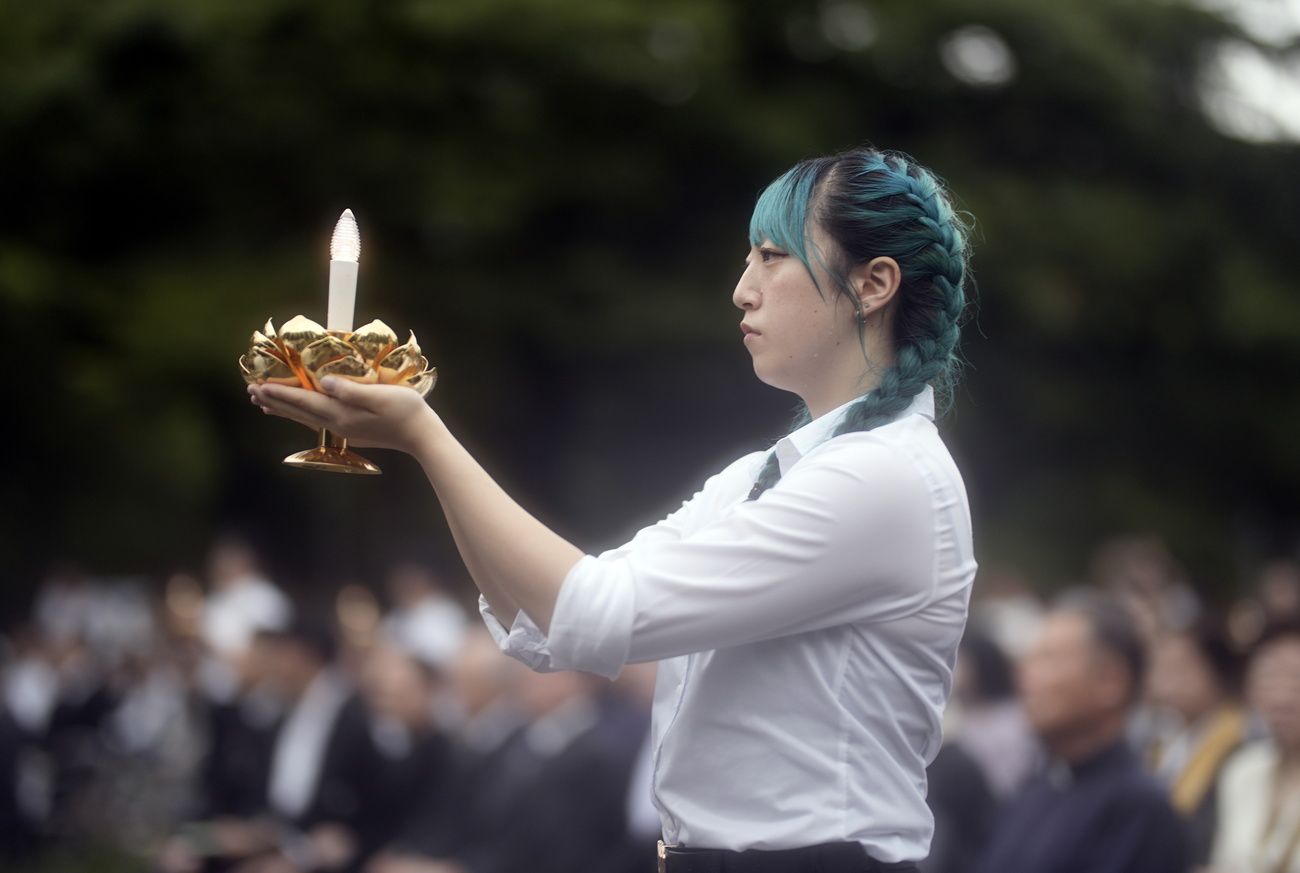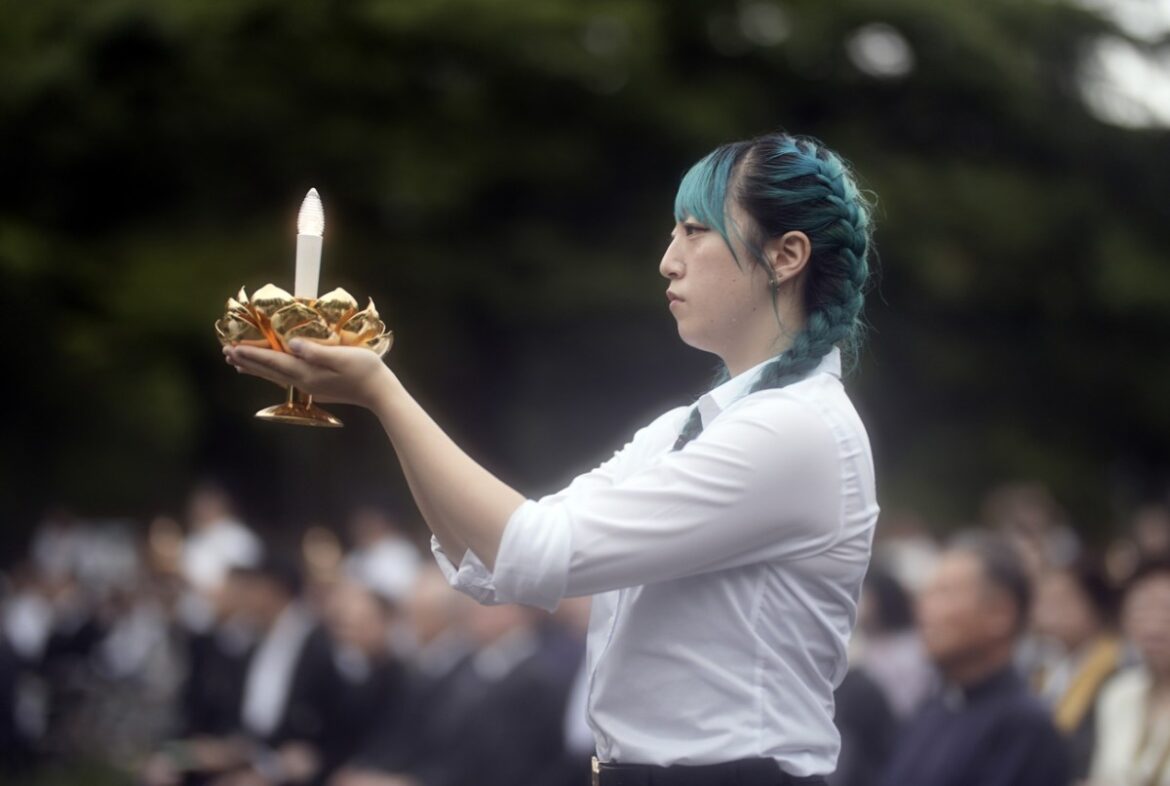
A young student holds a candle at the start of a memorial ceremony for the victims of the atomic bomb at the Hypocenter Park in Nagasaki, southwestern Japan, 08 August 2025.
keystone
Listen to the article
Listening the article
Toggle language selector
English (US)
English (British)
Generated with artificial intelligence.
Eighty years have passed since the atomic bombings of Hiroshima and Nagasaki. In Japan, the post-war generation now makes up the majority of the population, raising the challenge of how to pass wartime memories on.
This content was published on
September 29, 2025 – 09:00
As atomic bomb survivors age, opportunities to hear their testimonies directly are diminishing. Today, 90% of Japan’s population was born after the war. The average age of surviving hibakusha, or atomic bomb survivors, has now surpassed 86. For the first time, the number of surviving hibakusha has fallen below 100,000 this year.
A nationwide survey conducted by the Japanese Red Cross Society in 2025 found that one in two respondents had heard firsthand accounts of the war. Among teenagers, however, that figure dropped below half. The survey covered 1,200 people aged from their teens to over 60.
While older generations often learned about the war from grandparents and relatives, today’s teenagers largely depend on the dwindling number of war witnesses.
Watch: A survivor reflects on the day the atomic bomb was dropped
The survey revealed a modest generational divide in attitudes toward nuclear weapons and concerns about Japan’s potential involvement in future conflicts. Younger respondents were more likely to worry that Japan might one day become a party to war.
Across all age groups, a majority agreed that nuclear weapons should neither be possessed nor used. But the share of those who considered possession for self-defense unavoidable was highest among teenagers, at 32%.
“While many are committed to the abolition of nuclear weapons, they are also conflicted about issues of possession and use,” Hiroto Oyama, deputy director of the International Department at the Japanese Red Cross Society, told Swissinfo.
A separate survey conducted by the Institute of Statistical Mathematics in 2022 highlighted similar contrasts: the younger the respondents, the more likely they were to view the US atomic bombings as justified. Among teenagers, one in four held this view – the highest proportion of any age group. They were also less likely to believe that nuclear disarmament contributes to global security.
Watch: A Japanese journalist reflects on differing perceptions abroad
According to the Red Cross survey, more than 80% of respondents across generations said it was necessary to pass on memories of the war.
Watch: “We may be the last generation to hear directly from survivors” — Japanese high school students call for a nuclear-free world in Geneva
Edited by Virginie Mangin /gw


AloJapan.com